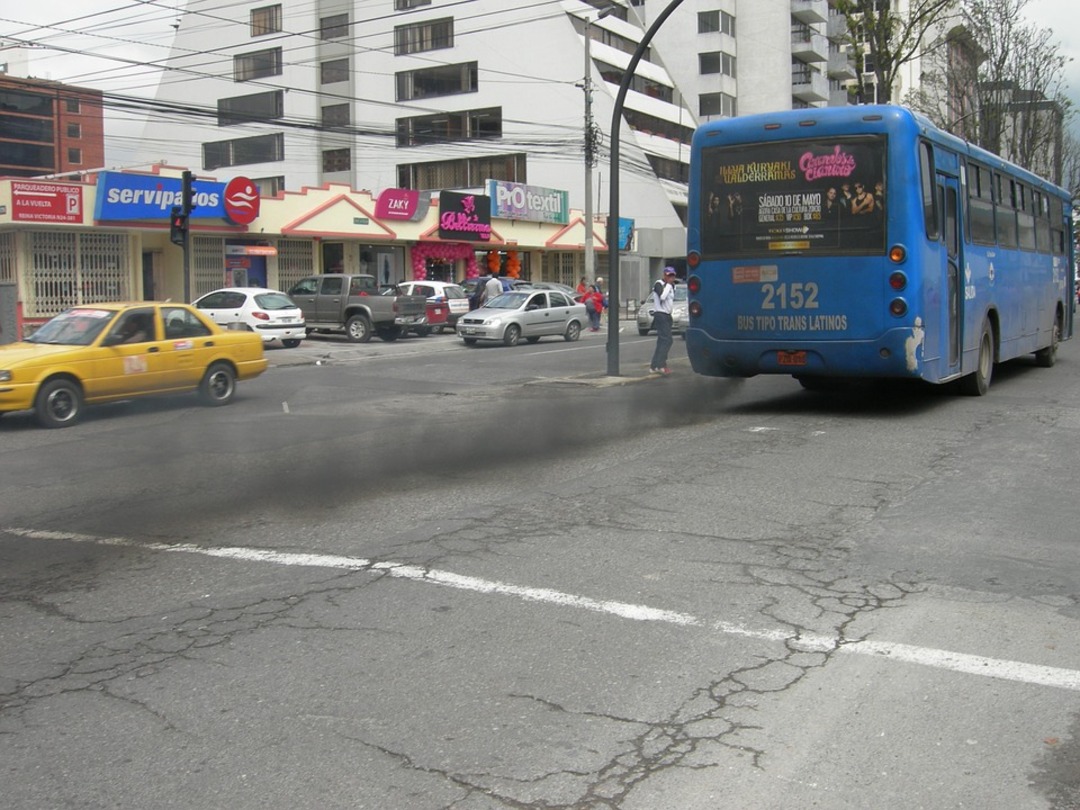-
World Bank report suggests pricing cost of air pollution in the Middle East

The Asharq Al-Awsat reported, World Bank report suggests pricing the cost of air pollution and reforming fossil fuel subsidies and creating markets for emissions, along with offering cleaner transportation options in the Middle East.
According to the new report, the human and economic cost of air pollution and degraded seas and coastlines is immense, estimated to be more than 3% of GDP in some countries of the Middle East and North Africa (MENA).
The report, Blue Skies, Blue Seas: Air Pollution, Marine Plastics and Coastal Erosion in the Middle East and North Africa, focuses on the degradation of "blue" natural assets in the MENA region (clean air, health seas and stable coastlines) and offers policy recommendations to reverse the threat to this natural capital.
"Polluted skies and seas are costly to the health, social and economic wellbeing of millions of people in the Middle East and North Africa region," said Ferid Belhaj, World Bank Vice President for the Middle East and North Africa, in a press release on Monday.

He added: "As countries recover from COVID-19, there is an opportunity to change course and choose a greener, bluer and more sustainable growth path that has fewer emissions and less environmental degradation."
Emergency measures set out in Delhi's India to reduce severe air pollution
To address marine plastic pollution, the report's recommendations include improving solid waste management, creating reliable market structures for recycling markets and increased collaboration with the private sector for plastic alternatives, while also reducing fossil fuel subsidies which artificially reduce the price of plastics versus alternatives.
Report says air pollution in Europe still killing 300,000 a year
The report said, to tackle coastal erosion, governments must better understand the drivers of erosion and determine hotspots while also embarking on integrated coastal zone management schemes and adopting nature-based solutions that protect coastlines, including dune vegetation or artificial reefs. Moreover, practices that exacerbate coastal erosion should be controlled, including effective bans for illegal sand mining, and retrofitting dams that obstruct the flow of sediment from rivers to the coasts.
Source: aawsat
You May Also Like
Popular Posts
Caricature
BENEFIT Sponsors BuildHer...
- April 23, 2025
BENEFIT, the Kingdom’s innovator and leading company in Fintech and electronic financial transactions service, has sponsored the BuildHer CityHack 2025 Hackathon, a two-day event spearheaded by the College of Engineering and Technology at the Royal University for Women (RUW).
Aimed at secondary school students, the event brought together a distinguished group of academic professionals and technology experts to mentor and inspire young participants.
More than 100 high school students from across the Kingdom of Bahrain took part in the hackathon, which featured an intensive programme of training workshops and hands-on sessions. These activities were tailored to enhance participants’ critical thinking, collaborative problem-solving, and team-building capabilities, while also encouraging the development of practical and sustainable solutions to contemporary challenges using modern technological tools.
BENEFIT’s Chief Executive Mr. Abdulwahed AlJanahi, commented: “Our support for this educational hackathon reflects our long-term strategic vision to nurture the talents of emerging national youth and empower the next generation of accomplished female leaders in technology. By fostering creativity and innovation, we aim to contribute meaningfully to Bahrain’s comprehensive development goals and align with the aspirations outlined in the Kingdom’s Vision 2030—an ambition in which BENEFIT plays a central role.”
Professor Riyadh Yousif Hamzah, President of the Royal University for Women, commented: “This initiative reflects our commitment to advancing women in STEM fields. We're cultivating a generation of creative, solution-driven female leaders who will drive national development. Our partnership with BENEFIT exemplifies the powerful synergy between academia and private sector in supporting educational innovation.”
Hanan Abdulla Hasan, Senior Manager, PR & Communication at BENEFIT, said: “We are honoured to collaborate with RUW in supporting this remarkable technology-focused event. It highlights our commitment to social responsibility, and our ongoing efforts to enhance the digital and innovation capabilities of young Bahraini women and foster their ability to harness technological tools in the service of a smarter, more sustainable future.”
For his part, Dr. Humam ElAgha, Acting Dean of the College of Engineering and Technology at the University, said: “BuildHer CityHack 2025 embodies our hands-on approach to education. By tackling real-world problems through creative thinking and sustainable solutions, we're preparing women to thrive in the knowledge economy – a cornerstone of the University's vision.”
opinion
Report
ads
Newsletter
Subscribe to our mailing list to get the new updates!






















